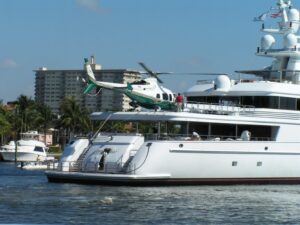What the International Monetary Fund says about Brazil…

IMF Executive Board Concludes 2021 Article IV Consultation
with Brazil

Washington, DC – September 22, 2021: On September 10, 2021, the Executive Board of the International Monetary Fund (IMF) concluded the Article IV consultation with Brazil.
(Note: Under Article IV of the IMF’s Articles of Agreement, the IMF holds bilateral discussions with members, usually every year. A staff team visits the country, collects economic and financial information, and discusses with officials the country’s economic developments and policies. On return to headquarters, the staff prepares a report, which forms the basis for discussion by the Executive Board.)
Economic performance has been better than expected, in part due to the authorities’ forceful policy response. GDP regained its pre-pandemic level in 2021Q1 and momentum continues to be favorable, supported by booming terms of trade and robust private sector credit growth. Tragically, the COVID-19 pandemic has claimed the lives of more than 550,000 Brazilians.
Renewed lockdowns following a severe second COVID-19 wave early this year and the rollout of vaccination have helped bring down infections since April, with new daily COVID-19 cases and deaths falling significantly from their peaks. The government has procured sufficient doses to inoculate the adult population in 2021, with the most vulnerable population expected to be fully inoculated by the end of the year.
Real GDP is projected to grow by 5.3 percent in 2021. An improving labor market and high levels of household savings will support consumption and, as vaccinations continue, pent-up demand will return for in-person services. Depleted inventories will be rebuilt and the upswing in commodity prices will support new investment.
Key challenges remain. Currency depreciation and a surge in commodity prices have fed into headline inflation and inflation expectations even as the output gap remains negative. The labor market is lagging the recovery in output, and the unemployment rate is high, especially among youths, women, and afro-Brazilians.
Emergency cash transfers will eventually expire and, in the absence of a permanent strengthening of the social safety net, poverty and inequality could become more acute. Near term fiscal risks are low, but the high level of public debt continues to pose medium-term risks. Restoring high and sustained growth, increasing employment, raising productivity, improving living standards, and reducing vulnerabilities will require policy efforts to eliminate bottlenecks and foster private sector-led investment.
Executive Board Assessment
Note: At the conclusion of the discussion, the Managing Director, as Chairman of the Board, summarizes the views of Executive Directors, and this summary is transmitted to the country’s authorities.
Executive Directors commended the Brazilian authorities for their decisive policy response to the COVID-19 shock, which significantly reduced the severity of the 2020 recession and cushioned its impact on the poor and vulnerable while setting the stage for a strong recovery in 2021. Directors welcomed the momentum of institutional reforms, despite the pandemic, to create the foundations for a more competitive economy.
However, the pandemic has exacerbated long-standing challenges to higher growth and socio-economic inclusion. Further policy efforts are needed to bolster market confidence, foster private-sector-led investment, and strengthen the medium-term outlook.
Directors agreed that fiscal policy should focus on rebuilding buffers and reducing budget rigidities to create space for public investment and a stronger social safety net. The expenditure ceiling has played an important role in maintaining market confidence and continued adherence to the rule is necessary to reduce public debt. Comprehensive tax reform should aim to increase progressivity, simplify the system, and improve resource allocation.
The tax reform should include a bold plan to scale back tax expenditures to frontload the benefits to equity and efficiency. Directors encouraged the authorities to adopt a more robust medium-term fiscal framework and strengthen subnational finances. These measures would help enhance fiscal credibility, reduce fiscal risks, and improve the capacity of the government to manage adverse shocks.
Directors supported the ongoing steady tightening of monetary policy to address rising inflation and keep inflation expectations well-anchored. Given the uncertainty around the outlook, policy would need to continue being data dependent, complemented with proactive communication and clear forward guidance.
Directors welcomed the authorities’ commitment to a flexible exchange rate and to limit intervention to countering disorderly market conditions. Directors noted that the banking system has been resilient and has supported the recovery. They agreed that a gradual phasing out of crisis-related financial support is appropriate and endorsed the authorities’ efforts to enhance financial inclusion and promote competition in the banking system.
Directors welcomed the ambitious supply-side reform agenda aimed at boosting productivity, potential growth, and living standards. Concerted action is needed to liberalize foreign trade and product markets, increase formal labor market flexibility, and improve governance. Strengthening the effectiveness and predictability of the anti-corruption and AML/CFT frameworks remains critical. Steps are also needed to further improve the environment for private sector investment.
Directors welcomed initiatives to foster environmentally sustainable activities in response to climate-related risks. Many Directors encouraged closer collaboration between the authorities and staff to analyze climate-related risks in macroeconomic assessments and evaluations of financial stability.


